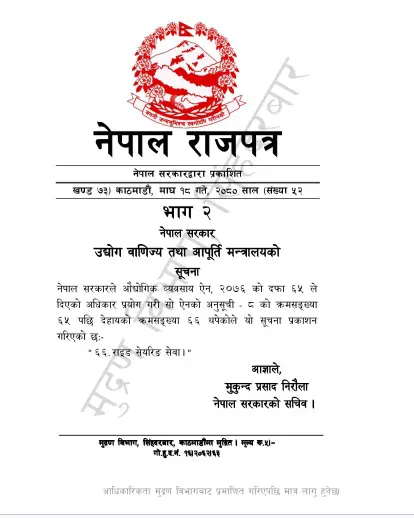The government has given its recognition to the ride-sharing service as an industry in Nepal. The move will help with closer regulation, monitoring, and work procedures in Nepal while the “industry” will also benefit from the state approval.
Adding ride-sharing service to The Industrial Enterprises Act, 2076 (2020), the government finally recognized it as an industry.
By exercising the authority granted by section 65 of the Act, the Ministry of Industry, Commerce and Supply published a notice in the gazette (Rajpatra) on Thursday (February 01) adding “serial number 66” listing 6.6 ride-sharing services.

Check out: Top 5 Ride-sharing Apps in Nepal
Ride-sharing is now an industry, what does that mean?
Being recognized as an industry, ride-sharing services can now be registered at the Industry department and operate commercially. There’s been a tremendous debate over ride-sharing services providing transport to the public. While the daily-life commuters have seen it as an escape from the “over-charging” taxis, the traditional transport has been vocally protesting. But subduing their growth has been difficult as it’s backed by technology. In fact, provinces like Bagmati has already made ride-sharing legal.
So, with the recognition of an industry, ride-sharing service operators will now be able to run their services legally under government regulation. This is one remarkable leap for the industry as it’s going to help many with employment generation as well as providing legality to the growing platform.
This may interest you too: F1Soft enters ride-sharing platform with “JumJum”: Find its top features
There are already a host of ride-sharing services promising transport at affordable costs. An industry recognition could be one much-needed step the operators were wishing for which has now been granted. The other important aspect is that Nepal’s transport law is yet to accommodate necessary provisions for ride-sharing.
Do you think the government should speed up its complete approval of ride-sharing and promote it or subject it to limbo? Do share your insights in the comments below.



